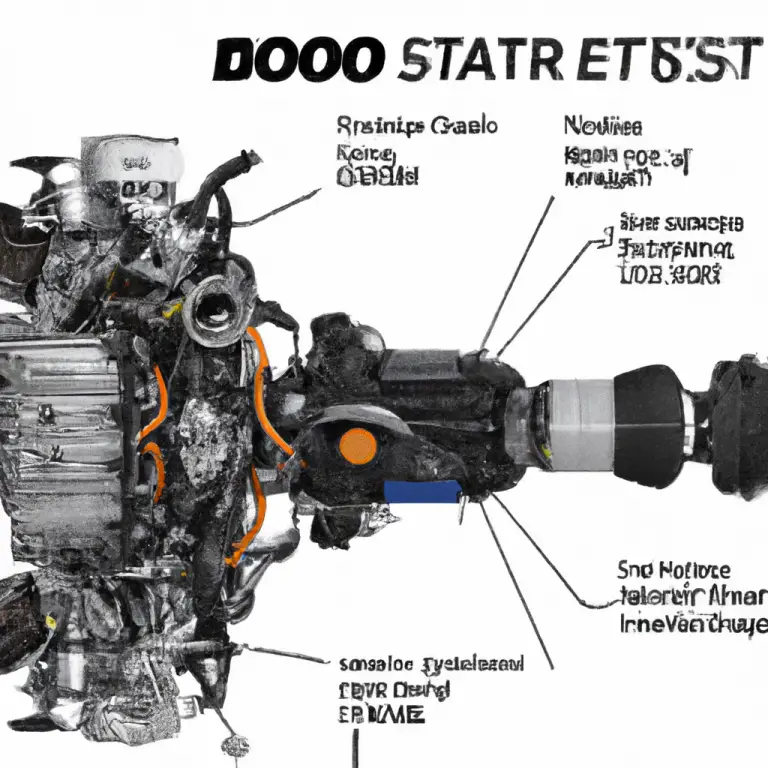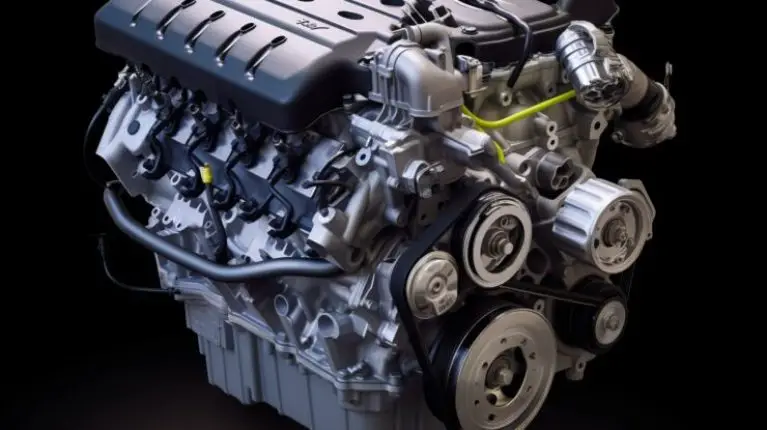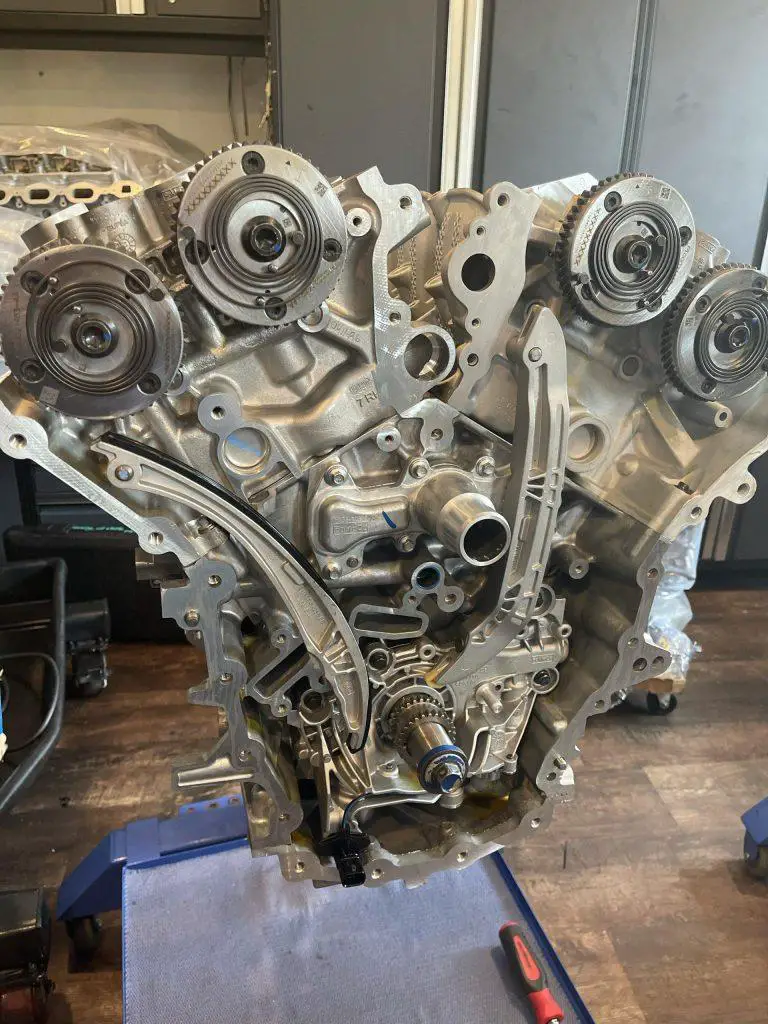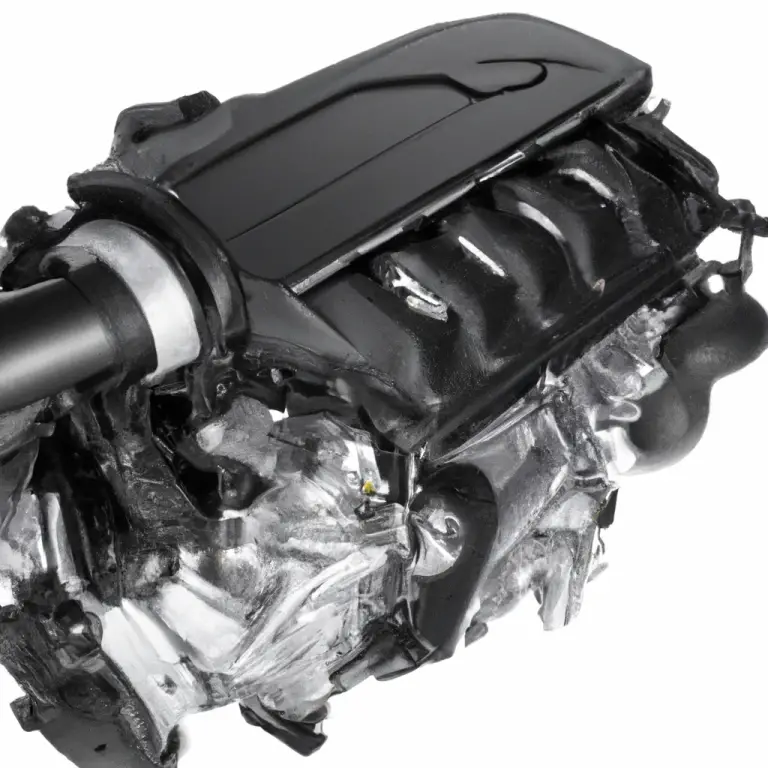Why is My Ecoboost Getting Bad Gas Mileage
The Ford EcoBoost engine is designed to deliver both performance and efficiency, however, there are several factors that can contribute to poor gas mileage.
Improper tire pressure, a dirty air filter, poor fuel quality, and excessive weight are just some of the reasons why your EcoBoost may be getting lower gas mileage than expected.
The Ford EcoBoost engine is a popular choice for drivers who want a combination of performance and fuel efficiency.
However, if you’re noticing that your EcoBoost isn’t delivering the gas mileage you expect, there may be several underlying issues that need to be addressed.
In this post, we’ll explore 8 common reasons why your EcoBoost is getting bad gas mileage and what you can do to improve its performance and efficiency.
From improper tire pressure to dirty fuel injectors, we’ll cover everything you need to know to get the most out of your vehicle.
8 common reasons why your EcoBoost is getting bad gas mileage
- Improper tire pressure.
- Dirty air filter.
- Poor fuel quality.
- Overloading or excessive weight.
- Engine misfires.
- Dirty fuel injectors.
- Old spark plugs.
- Malfunctioning sensors.
1. Improper tire pressure
One of the most common reasons for poor gas mileage in a Ford EcoBoost engine is improper tire pressure.
Tires that are underinflated can increase rolling resistance, which in turn, reduces fuel efficiency and increases the workload of the engine.
Make sure to regularly check your tire pressure and inflate them to the recommended level specified in your owner’s manual.
This simple step can go a long way in improving the fuel efficiency of your EcoBoost.
2. Dirty air filter
A dirty air filter can also contribute to poor gas mileage in a Ford EcoBoost engine.
The air filter’s main function is to prevent dirt, dust, and other particles from entering the engine, but when it becomes clogged, it can restrict airflow to the engine.
This increased restriction can make the engine work harder and reduce its fuel efficiency. Regularly replacing the air filter is an easy and affordable way to maintain the performance and efficiency of your EcoBoost.
Make sure to consult your owner’s manual for the recommended air filter replacement schedule.
3. Poor fuel quality
Using poor-quality fuel can also lead to reduced gas mileage in a Ford EcoBoost engine. Low-quality fuel can contain contaminants that can clog fuel injectors and reduce the engine’s performance.
It’s important to always use high-quality fuel from a reputable source and to avoid filling up at cheaper, less established gas stations.
If you’re unsure about the quality of the fuel you’re using, have your engine checked by a mechanic.
They can run tests to determine if low-quality fuel is causing the problem and suggest appropriate remedies.
4. Overloading or excessive weight
Carrying excessive weight or overloading your vehicle can also cause your Ford EcoBoost to get poor gas mileage.
When a vehicle is carrying more weight than it was designed for, it requires more fuel to maintain its speed and power.
This can reduce fuel efficiency and increase the amount of fuel consumed. Make sure to remove any unnecessary items from your vehicle and avoid carrying heavy loads whenever possible.
If you frequently carry large loads, consider installing a roof rack or trailer hitch to distribute the weight more evenly and reduce the strain on your engine.
5. Engine misfires
Engine misfires can also lead to reduced gas mileage in a Ford EcoBoost engine. Misfires occur when one or more cylinders in the engine do not fire properly, causing a loss of power and reduced efficiency.
Engine misfires can be caused by a variety of factors, including worn spark plugs, a failing ignition system, or a problem with the fuel delivery system.
If you suspect that your EcoBoost is experiencing engine misfires, have it inspected by a mechanic.
They can diagnose the problem and suggest the necessary repairs to restore the engine’s performance and efficiency.
6. Dirty fuel injectors
Dirty fuel injectors can also reduce the fuel efficiency of a Ford EcoBoost engine. Fuel injectors are responsible for delivering the fuel into the engine, but over time, they can become clogged with dirt, debris, and other contaminants.
This can restrict the flow of fuel to the engine and reduce its efficiency. If you suspect that your fuel injectors are dirty, have them cleaned by a professional mechanic.
Regular cleaning can help maintain the performance and efficiency of your EcoBoost and prevent costly repairs down the line.
7. Old spark plugs
Worn or old spark plugs can also contribute to reduced gas mileage in a Ford EcoBoost engine. Spark plugs are responsible for igniting the fuel-air mixture in the engine, and over time, they can wear out and become less effective.
This can cause misfires, decreased engine performance, and reduced fuel efficiency. Regularly replacing the spark plugs is an important part of maintaining the performance and efficiency of your EcoBoost.
Consult your owner’s manual for the recommended spark plug replacement schedule and have them replaced by a professional mechanic if necessary.
8. Malfunctioning sensors
Malfunctioning sensors can also lead to reduced gas mileage in a Ford EcoBoost engine. The engine relies on a variety of sensors to maintain optimal performance, including air/fuel ratio sensors, mass air flow sensors, and throttle position sensors.
If any of these sensors fail or become damaged, they can cause the engine to run less efficiently, reducing fuel efficiency and performance.
If you suspect that one or more of your engine sensors are malfunctioning, have your EcoBoost inspected by a mechanic.
They can diagnose the problem and suggest the necessary repairs to restore the performance and efficiency of your vehicle.
2012 F150 Ecoboost gas mileage problem fixed
Does Ecoboost Get Better Gas Mileage
The Ecoboost engine is available in several different Ford models, including the Fusion, Escape, and Edge. It’s a four-cylinder turbocharged engine that delivers excellent fuel economy without sacrificing power.
In fact, the Ecoboost engine offers up to 20% better fuel economy than comparable non-turbocharged engines.
One of the reasons the Ecoboost gets such great gas mileage is that it’s designed to run on regular unleaded gasoline.
You don’t have to use premium gas like some other high-performance engines, which can save you money over time.
The Ecoboost is also a very efficient engine, so it doesn’t waste as much fuel as some other engines do.
If you’re concerned about emissions, you’ll be happy to know that the Ecoboost is a low-emissions engine.
It meets or exceeds all federal emissions standards, so you can drive with confidence knowing that your vehicle is doing its part to protect the environment.
Overall, the Ford Ecoboost is an excellent choice if you’re looking for a vehicle with great gas mileage.
It’s available in a variety of models to suit your needs, and it’s a very efficient engine that doesn’t sacrifice power or performance.
If you’re looking for a green vehicle option that won’t break the bank at the pump, the Ecoboost should definitely be on your list!
How Do I Get Better Gas Mileage on My Ecoboost?
If you’re a proud owner of an Ecoboost engine, you’re probably already familiar with the benefits of this efficient and powerful technology.
Ecoboost engines are designed to offer a balance between performance and fuel economy, making them a popular choice for drivers who want the best of both worlds.
However, if you’re looking for ways to maximize your Ecoboost’s fuel efficiency, there are a few things you can do to get better gas mileage.
Now, we’ll explore some of the most effective ways to improve the fuel economy of your Ecoboost engine.
By following these tips, you can save money on gas, reduce your carbon footprint, and get the most out of your vehicle.
Keep Your Tires Inflated
One of the easiest ways to improve your Ecoboost’s fuel efficiency is to make sure your tires are properly inflated.
When your tires are underinflated, they create more rolling resistance, which can cause your engine to work harder and use more fuel.
By keeping your tires inflated to the recommended pressure, you can reduce this resistance and help your engine work more efficiently.
You can find your vehicle’s recommended tire pressure in your owner’s manual or on a sticker on the driver’s side door jamb.
Be sure to check your tire pressure regularly, especially during temperature changes, to ensure they remain inflated to the proper levels.
Use the Right Oil
Another key factor in maximizing your Ecoboost’s fuel efficiency is to use the right type of oil.
Ecoboost engines require synthetic blends or full synthetic oil to perform optimally, and using the wrong type of oil can cause your engine to work harder and use more fuel.
By using the correct oil, you can reduce friction and improve your engine’s efficiency, leading to better gas mileage.
Be sure to consult your owner’s manual or speak with a professional mechanic to determine the appropriate type of oil for your Ecoboost engine.
Keep Your Engine Clean
Keeping your Ecoboost engine clean is another way to improve its fuel efficiency. A dirty engine can create more resistance and cause your engine to work harder, leading to increased fuel consumption.
By keeping your engine clean, you can reduce this resistance and help your engine work more efficiently.
Regular maintenance, such as oil changes and air filter replacements, can help keep your engine clean and running smoothly.
You can also use fuel system cleaners to remove any buildup in your engine’s fuel system and improve your engine’s efficiency.
Drive Smarter
The way you drive can also have a significant impact on your Ecoboost’s fuel efficiency.
By practicing smarter driving habits, you can reduce your fuel consumption and improve your gas mileage. Here are a few tips to help you drive more efficiently:
- Avoid aggressive driving: Rapid acceleration, hard braking, and speeding can all increase your fuel consumption. By driving more calmly and avoiding sudden movements, you can reduce your engine’s workload and improve your fuel efficiency.
- Use cruise control: When driving on the highway, using cruise control can help you maintain a steady speed and reduce the amount of fuel your engine needs to use to maintain that speed.
- Plan your trips: If possible, try to plan your trips to avoid heavy traffic or rush hour. Sitting in traffic or idling can waste fuel and reduce your gas mileage.
- Remove excess weight: Carrying unnecessary weight in your vehicle can increase your fuel consumption. Try to remove any unnecessary items from your vehicle, such as heavy equipment or luggage, to improve your gas mileage.
Upgrade Your Air Intake System
Upgrading your air intake system can also help improve your Ecoboost’s fuel efficiency. A more efficient air intake system can increase airflow to your engine and help it work more efficiently, leading to better gas mileage.
Aftermarket air intake systems are available for Ecoboost engines and can be a good investment for those who want to maximize their fuel efficiency.
However, it’s important to note that not all aftermarket air intake systems are created equal. Be sure to do your research and choose a high-quality system that is designed specifically for your vehicle to ensure the best results.
Use the Right Fuel
Finally, using the right fuel can also help improve your Ecoboost’s fuel efficiency. Many Ecoboost engines are designed to run on premium gasoline, which can provide better performance and fuel efficiency.
However, some Ecoboost engines may be able to run on regular gasoline without issue.
Be sure to consult your owner’s manual or speak with a professional mechanic to determine the appropriate type of fuel for your Ecoboost engine. Using the wrong type of fuel can cause engine damage and reduce your fuel efficiency.
There are several ways to improve the fuel efficiency of your Ecoboost engine. By following these tips, you can save money on gas, reduce your carbon footprint, and get the most out of your vehicle.
Keep your tires inflated, use the right oil, keep your engine clean, drive smarter, upgrade your air intake system, and use the right fuel to get the best possible gas mileage from your Ecoboost engine.
Related topic to know
Why is My F150 Getting Bad Gas Mileage
How Does the 1/4 Mile Time of the 5.0 F150 Compare to the Ecoboost’s Gas Mileage?
The f150 1/4 mile time analysis reveals that the 5.0 F150 delivers impressive acceleration, allowing it to cover the quarter-mile distance in a quick and powerful manner. On the other hand, the Ecoboost variant shines in terms of its fuel efficiency, delivering excellent gas mileage for those looking to optimize their consumption. Ultimately, it boils down to prioritizing speed or economy when choosing between the two options.
Can Improving the Life Expectancy of My Ford 5.4 Engine Also Improve Gas Mileage?
Improving the life expectancy of my Ford 5.4 engine holds secrets for reaching 450k miles, but can it also enhance gas mileage? While enhancing engine durability through regular maintenance and using quality parts can contribute to fuel efficiency, solely focusing on engine lifespan may not directly impact gas mileage. Efficiency gains are possible through proper tuning, tire maintenance, and driving habits. Nevertheless, maintaining a healthy engine can indirectly support better fuel economy.
3 Most Frequently Asked Questions
Why is my Ford EcoBoost getting bad gas mileage?
There are several factors that can contribute to poor gas mileage in a Ford EcoBoost engine, including improper tire pressure, a dirty air filter, poor fuel quality, and excessive weight.
What should I check first if my EcoBoost is getting bad gas mileage?
You should start by checking the tire pressure, air filter, and fuel quality. If these are not the cause of the problem, you may need to have your vehicle inspected by a mechanic.
Can a dirty air filter cause poor gas mileage in my EcoBoost?
Yes, a dirty air filter can reduce engine performance and fuel efficiency, leading to poor gas mileage.
Does a Lower 0-60 Time Contribute to Better Gas Mileage in the F150 3.5 Ecoboost?
When considering the f150 ecoboost acceleration review, it’s important to understand that a lower 0-60 time doesn’t necessarily contribute to better gas mileage. While improving acceleration can enhance the vehicle’s performance, gas mileage is influenced by several factors such as engine efficiency, driving habits, and aerodynamics. Therefore, it’s crucial to evaluate all aspects, including the F150’s Ecoboost engine, to determine its overall fuel efficiency.
Conclusion
In conclusion, there could be several reasons why your Ford EcoBoost is getting bad gas mileage. Some of the most common factors include incorrect tire pressure, a dirty air filter, outdated engine management software, an incorrect fuel type, and excessive idling.
It’s important to address these issues and to follow regular maintenance guidelines in order to maintain the fuel efficiency of your Ford EcoBoost and keep it running smoothly.





